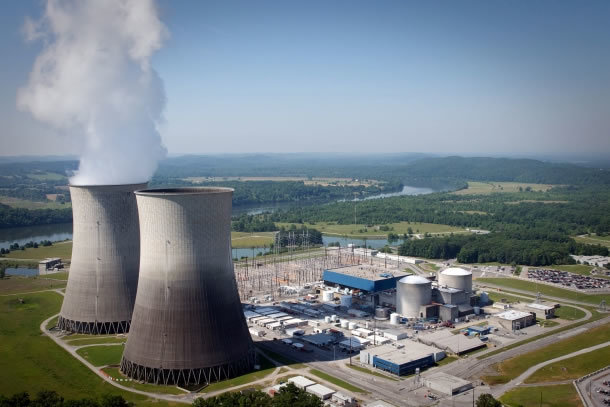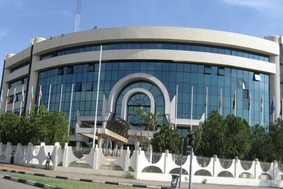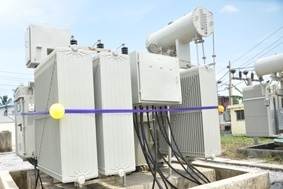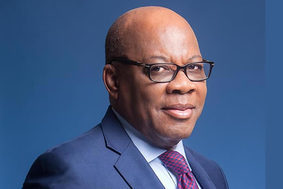Diversification of energy mix to assist Nigeria’s economic development

Feature Highlight
Based on the country’s GDP and global trends, electricity consumption should be four to five times higher than it is today.
Nigeria is one of the most populous emerging markets with rich and diverse natural resources, yet the country still experiences serious difficulties in meeting its goals of economic and social development.
Against this background, the overdependence on oil and gas resources also has a negative impact on the current state of affairs in the economic sector. Once considered as a catalyst to turn Nigeria into one of the leading economies in the world, today these fossil fuels are demonstrating reverse effects. The major drawbacks concerning the overdependence on oil revenue for the country’s survival is related with dependence on oil multinationals and volatile global pricing.
On the other side, surprisingly huge amounts of oil and gas resources have not helped Nigeria to solve its growing energy crisis. Nigeria is currently the biggest economy in Africa, however, its power sector is performing well below the level of its peers. Over half of the population (roughly 90 bln people) have no access to grid-connected electricity and those who are connected to the grid suffer extensive power outages.
Although Nigeria’s installed capacity is estimated at around 13,000 MW, only half of it is operational, and only about 5,000 MW reaches consumers on the grid. Restricted output has been blamed on gas supply problems, water shortages, grid constraints and breakdowns.
With a current supply of 130kWh per capita, Nigeria is lagging well behind other developing nations in terms of grid-based electricity consumption. Based on the country’s GDP and global trends, electricity consumption should be four to five times higher than it is today. For example, Ghana’s per capita consumption of 360kWh is 2.9 times higher than that of Nigeria, and South Africa’s (4,000kWh) is 31 times higher.
Primary energy consumption in Nigeria is largely satisfied by traditional biomass and waste (typically consisting of wood, charcoal, manure, and crop residues) and accounts for 74% of the energy mix. This high share represents the use of biomass to meet off-grid heating and cooking needs, mainly in rural areas. The International Energy Agency (IEA) estimated that 115 million people in Nigeria rely on traditional biomass and waste as their main sources of energy. The other 26% is made up of oil, gas and hydropower. In recent years, the electricity production from hydroelectric sources have plunged due to water shortages and climate change.
As for renewable energy sources, Nigeria has stand-alone wind and solar energy projects, which do not produce considerable electricity.
The insufficient energy generation and inadequate distribution is a great obstacle for economic growth and industrial development. Energy supply shortage have an adverse effect on the standard of living of the citizens.
Realizing the great economic risks that come with relying heavily on only a few sources of energy, the Nigerian government took a decision to add nuclear power to diversify the energy mix and generate reliable and affordable electricity.
As Nigeria wants to embark on the path of dynamic development, it needs more than 60,000 MW to ensure sustainable growth. The Nigerian government aims to electrify at least 80% of its population by the year 2035, and is investing in nuclear energy to help meet this target.
Nigeria plans to install 4,000 MW of nuclear power by the mid-2030s to guarantee sustainable baseload energy generation. The development of nuclear power in Nigeria is based on a clear vision - to add an environmentally friendly and sustainable source of energy that can guarantee affordable and reliable energy generation for decades.
Guided by IAEA, the Nigerian nuclear programme has already received positive insights from its Integrated Regulatory Review Service (IRRS) team in July 2017 following a 10 days mission. The IRRS team identified good practice in the Nigerian Nuclear Regulatory Authority (NNRA)’s routine training for news media to inform them about its processes and decisions, as well as the possible radiation risks associated with facilities and activities.
Apart from energy generation, Nigeria already employs nuclear technologies for medical research and science, thanks to its research reactor.
Other Features
-
The best sites to buy and sell Bitcoin in Nigeria: A comprehensive ...
Buying and selling BTC doesn’t have to be a hassle. Check out to best sites to buy and sell Bitcoin in Nigeria ...
-
At 50, Olajide Olutuyi vows to intensify focus on social impact
Like Canadian Frank Stronach utilised his Canadian nationality to leverage opportunities in his home country of ...
-
Reflection on ECOWAS Parliament, expectations for the 6th Legislature
The 6th ECOWAS Legislature must sustain the initiated dialogue and sensitisation effort for the Direct Universal ...
-
The $3bn private credit opportunity in Africa
In 2021/2022, domestic credit to the private sector as a percentage of GDP stood at less than 36% in sub-Saharan ...
-
Tinubunomics: Is the tail wagging the dog?
Why long-term vision should drive policy actions in the short term to achieve a sustainable Nigerian economic ...
-
Living in fear and want
Nigerians are being battered by security and economic headwinds. What can be done about it?
-
Analysis of the key provisions of the NERC Multi-Year Tariff Order ...
With the MYTO 2024, we can infer that the Nigerian Electricity Supply Industry is at a turning point with the ...
-
Volcanic explosion of an uncommon agenda for development
Olisa Agbakoba advises the 10th National Assembly on how it can deliver on a transformative legislative agenda for ...
-
Nigeria and the world in 2024
Will it get better or worse for the world that has settled for crises?
Most Popular News
- IFC, partners back Indorama in Nigeria with $1.25 billion for fertiliser export
- NDFF 2024 Conference to boost Nigeria’s blue and green economies
- CBN increases capital requirements of banks, gives 24 months for compliance
- CBN settles backlog of foreign exchange obligations
- Univercells signs MoU with FG on biopharmaceutical development in Nigeria
- Ali Pate to deliver keynote speech at NDFF 2024 Conference












